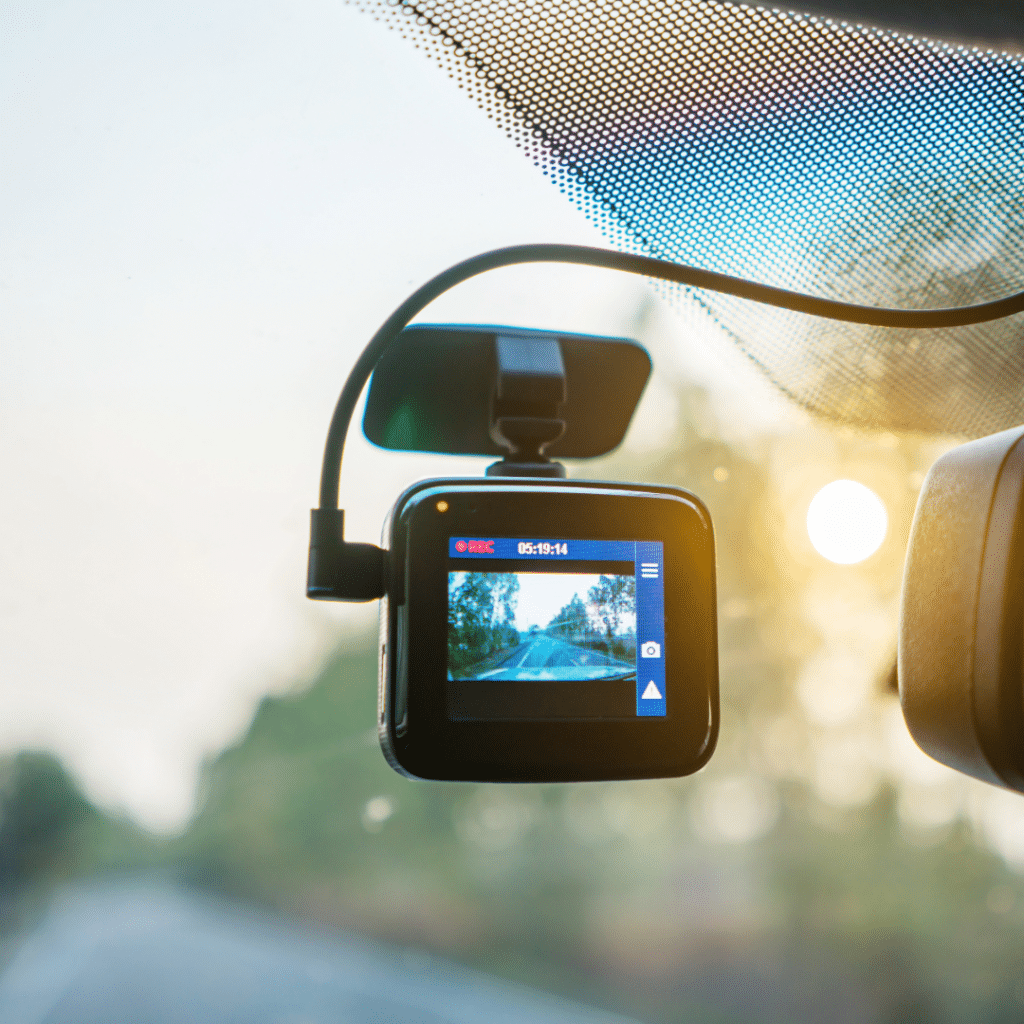Dashcam footage captured by a camera mounted on a car’s dashboard or rearview mirror is more than a one or two-minute montage of car accidents and near misses posted on YouTube and other social media platforms. Watch one of the videos and think about how persuasive the footage could be. Especially, when presented as evidence in a personal injury lawsuit.
Instead of a judge and jurors trying to imagine how an accident occurred from only the sometimes-conflicting testimony of witnesses presented by the opposing parties, dashcam footage lets them see it as it happened. A dashcam mounted in your car may provide the evidence needed to prove you suffered injuries in a car accident caused by another driver’s negligence. It also could be the evidence you need to defeat false claims that you contributed to causing the crash.
This guide to dashcam footage in car accident cases explains its value in car accident claims. Also, it provides you with essential information and guidance about the laws applying to their use in Florida. If you have been in a car accident and have questions about your right to compensation for the harm it caused, contact the experienced Tampa car accident lawyers at KFB Law for a free consultation.
What you need to know about dashcam technology
Law enforcement agencies and trucking companies have used dashcams for years. It was only a matter of time before the technology made its way into the family car. The bells and whistles you get with a dashcam are limited only by how much you want to spend.
All dashcams produce a continuous loop of footage once turned. Most cameras have impact detection that records when a crash is detected. Some models are powered by batteries and supercapacitors, which do not have wires. Other models have wires that plug into a USB port to draw power from your car’s electrical system.
The footage acquired by a dashcam is typically stored on an SD card. The camera records in a continuous loop. The oldest footage is overwritten when the storage capacity of the SD card is reached. Then, you switch to a new card. You can buy a camera that utilizes cloud storage to save recordings.
A battery-powered camera recording in a continuous loop stored on an SD card should not set you back too much. Just remember that batteries wear out, which could make your camera fail to operate when someone crashes into your car.
The role of dashcam footage in car accident claims
It may help you decide on the dashcam in your car by knowing the role of the video footage. Some of the ways video of a car crash can be used include:
- Accurately depict road conditions: Proving the condition of a road’s surface is easier when your car accident lawyer has a video of it to use as evidence.
- Unbiased account of a collision: The credibility of a witness can be an issue in a case, but video footage is unbiased. A video recorded by a dashcam depicts whatever was visible to the camera without regard to friendship, loyalty, or bias toward or against the parties.
- Powerful weapon against fraudulent claims: If someone claims that you caused an accident, the video from your car’s camera could prevent a fraudulent claim from being successful. For example, road rage incidents frequently include an enraged motorist cutting you off and quickly applying the brakes. This can result in a crash that may look like you were tailgating and caused a collision. A video of the entire sequence of events can prove what occurred. This can save you from increased insurance rates for causing an accident.
- Hit-and-run collisions: Florida had 104,273 hit-and-ran collisions last year. Hit-and-run accidents in the state killed 271 people. They also seriously injured another 871, according to the Florida Department of Highway Safety and Motor Vehicles. A camera mounted in your car can provide police with information to identify the driver who fled the scene. This includes the vehicle’s make, model, and license plate number.
- Encourage settlements instead of trials: Insurance company claims adjusters look for ways to avoid paying claims in car accident cases. Conflicting stories about the cause of a crash offer the insurance company for the at-fault driver an excuse to avoid settling your claim with your personal injury attorney. A video of a car crash can quickly put to rest conflicting stories. This may lead to a quicker and fairer settlement than would have been possible without it.
- Corroborating witness accounts: Eyewitness accounts of accidents can be powerful evidence. A witness whose account of a crash matches what is shown in video footage caught by a dashcam becomes even stronger.
Video footage of an accident recorded by a camera in your car can be requested by the attorney. They are defending the driver of the vehicle that hit you and used it as evidence to prove that you were at least partially at fault in causing the crash. According to Florida law, you cannot recover damages if you are more than 50% responsible for causing the collision.
If you are less than 50% responsible, compensation awarded to you by a jury will be reduced by your percentage of fault under the Florida modified comparative negligence law. Dashcam footage can be used as evidence by any party in a car accident case. This use is not limited to only the person suffering harm.
Don’t violate the law with your dashboard camera
This guide has focused on video footage so far, but some dashboard cameras can also record sound. An audio recording could violate Florida law that prohibits recording the voice of another person without their consent.
Some states permit audio recording of conversations. This is as long as at least one of the people participating is aware of it. For example, federal law and the law in some states follow a one-party consent rule for recording conversations. This means that at least one person involved in the conversation must consent to being recorded.
Florida requires the consent of all parties for the recording of a conversation to be legal. It’s a good idea to remember this rule when you have a dashcam installed in a car that records audio. An audio recording that violates is a felony punishable by a fine and imprisonment. Stick to video recording unless you discuss it first with your attorney.
How you install a dashcam must conform to state law. It is a violation of the law to install a camera in a car in a position that impedes the driver’s ability to see the road. The dashboard or the rearview mirror are popular places to mount a camera to avoid blocking the driver’s vision.
Get more information about dashcam footage from KFB Law
Technological developments, such as dash-mounted cameras, can help when you are injured in a car accident caused by the negligence of another motorist. Equally important to the success of your claim is the skill and experience of the Tampa car accident attorney at KFB Law you choose to represent you. Learn more about how KFB Law makes a difference by contacting us today for a free consultation.



